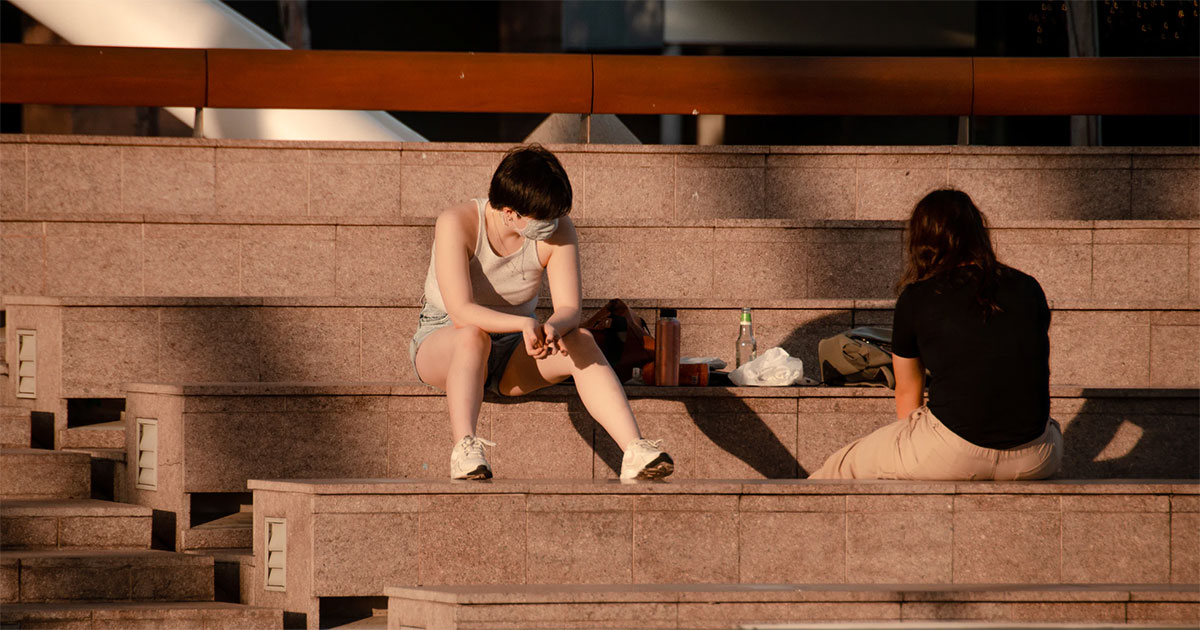A survey released on July 5, 2021 found that Singaporeans are experiencing more mental health problems during this Covid-19 pandemic.
The survey polled a total of 1,000 Singaporeans aged 18 to 70, between February and March 2021, who are from various income groups, education levels, races and professions.
Conducted by marketing communications agency Wunderman Thompson, it looked at Singaporeans’ sentiment and behaviour with regard to their physical, mental, relational and financial health.
The survey respondents cited financial and work stress as the top reasons for mental health issues, which highlighted the impact this pandemic is having on Singaporeans.
Mental health affected
Some 24 per cent of respondents said they felt anxious.
Some 21 per cent said they were depressed.
Close to four in 10 respondents said they had considered suicide at some point, with 13 per cent thinking about it at least once a week.
Under 35 age group
Those who felt less than ideal came from the under 35 age group, as well as those with young children under the age of six.
These relatively younger respondents may feel more work stress and financial insecurity, as they are more likely to be in junior and middle-level roles at work.
Tensions within households have been heightened for those with young children, working and studying from home, which are ill-designed for such tasks.
Family stresses
About half, or 49 per cent of respondents, agree that family stress has increased over the past year.
Some 36 per cent of respondents have seen an increase in domestic violence in their homes.
About 44 per cent have seen an increased anger level at home.
Suicide prevention agency Samaritans of Singapore said in early 2021 that suicide and crisis-related calls -- 39,492 in total -- in 2020 were up 18 per cent from a year earlier.
Callers reported more conflicts with romantic partners and family members.
Unhealthy coping habits
The pandemic environment has also seen Singaporeans turn to unhealthy ways of coping, as many have picked up or increased their unhealthy habits in the last year.
These habits include:
Spending more time on screens (73 per cent)
Becoming more sedentary (61 per cent)
Eating more junk food (46 per cent)
Not sleeping enough (40 per cent)
Drinking more alcohol (17 per cent)
Smoking more (13 per cent)
Unhealthy habits differ according to different income levels
These unhealthy behaviours differ by income levels, the survey found.
High-income individuals report habits such as eating sweets, drinking coffee and smoking or drinking.
Meanwhile, middle-income individuals are working long hours and eating more fried or junk food.
People earning lower income are living more sedentary lives and binge eating junk food.
Women less well off in general
Covid-19 has also extenuated inequities within society, between gender, education levels, employment status and income.
Women appeared to come off less well than men.
Only 41 per cent of women feel physically healthier as compared to 47 per cent of men.
Some 43 per cent of women feel mentally healthier, as compared to 49 per cent of men.
This can be attributed to women having to juggle paid work and care for children and elders.
Silver lining: People trying to cope
The survey also provided some indication that those with higher income and education levels are more proactive in managing their mental and physical health.
These individuals reported feeling more satisfied with the level of the health of their body, mind, relationships and finances.
High-income earners are defined as those earning S$75,000 and above.
Their assessment of how well they are doing is despite having to work the longest hours during the pandemic.
Those who have lost their jobs suffer from significantly poorer health.
Some 3 per cent of those employed reported terrible mental health.
This is compared to 22 per cent who lost their jobs and reported terrible mental health.
Some 46 per cent of survey respondents are reportedly working longer hours, which have led to heightened stress and anxiety levels.
Healthy ways of coping
But this pandemic has also given people time to themselves to spend on their own well-being.
The findings include:
Feeling physically healthier than before the pandemic (44 per cent)
Exercising more (50 per cent)
Eating healthy meals more often (46 per cent)
Spending more on being healthy (54 per cent)
While these findings appear almost contradictory and counter-intuitive to the reports that people are feeling less well mentally, they can be deduced as coping mechanisms to deal with a less than ideal situation.
Nearly half of Singaporeans said they are healthier now than before Covid-19 hit.
Some two-thirds of respondents even said they are more motivated to adopt healthier lifestyles.
The survey even found that 66 per cent of respondents are more motivated to be healthy, with 72 per cent even declaring that their physical health is “very much” a priority.
Top photo via Unsplash
If you like what you read, follow us on Facebook, Instagram, Twitter and Telegram to get the latest updates.
